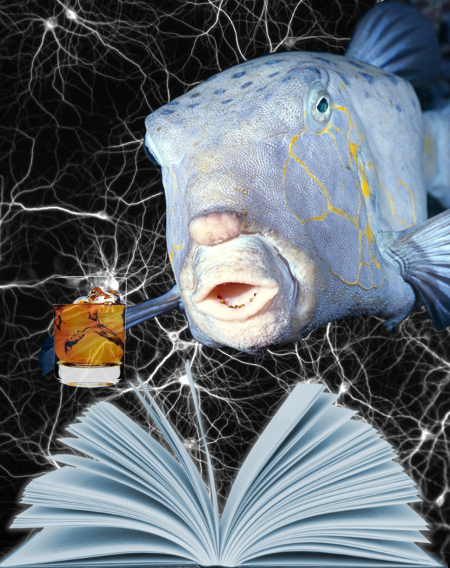Plea for better treatment as fish rights forgone
 Fish have the same emotional and mental capabilities as other vertebrates, yet they do not get anywhere near the same regard from most humans.
Fish have the same emotional and mental capabilities as other vertebrates, yet they do not get anywhere near the same regard from most humans.
For many people, there is a big difference in the way they consider land-based animals versus those that live in the water, but a new study says there is little basis for such ideas.
People often believe fish are dumb and can barely feel pain or stress, but a new article in the journal Animal Cognition says that fish cognition and sensory perception are generally on par with that of other animals.
It argues that more consideration should be given to fish welfare and anti-cruelty issues.
The clearest example is in the general acceptance of fishing. Many people who might abhor hunting on land have no problem with in an aquatic setting.
There would be outrage if it became common practice to go around punching holes in the faces of small animals, but when a fish is hooked and thrown back most consider it a humane action.
Associate Professor Culum Brown from Macquarie University wrote the recent piece encouraging people to think about fish as something more than food or pets.
He says that there is very little public concern – which is important to inform policy – about fish welfare issues.
Brown believes this relates to incorrect perceptions about the intelligence of fish, and ultimately of whether they are conscious. Such attitudes are also influenced because humans rarely come into contact with fish in their natural environments.
Fish have very good memories, live in complex social communities where they keep track of individuals, and can learn from one another.
They develop stable cultural tradition and can even recognise themselves and others. They cooperate with one another and show signs of Machiavellian intelligence, such as cooperation and reconciliation.
They build complex structures, are capable of using tools, and use the same methods for keeping track of quantities as humans do.
For the most part the primary senses of fish are just as good, and in many cases, better, than that of humans. Their behaviour is very much the same as that of primates, except that fish do not have the ability to imitate.
The level of mental complexity fish display is on a par with most other vertebrates, and there is mounting evidence that they can feel pain in a manner similar to humans. While the brains of fish differ from other vertebrates, fish have many analogous structures that perform similar functions.
Professor Brown concludes that if any animals are considered sentient, fish must be too.
“Although scientists cannot provide a definitive answer on the level of consciousness for any non-human vertebrate, the extensive evidence of fish behavioural and cognitive sophistication and pain perception suggests that best practice would be to lend fish the same level of protection as any other vertebrate,” says Brown, who acknowledges that such a move has implications for the fishing industry, among others.
“We should therefore include fish in our ‘moral circle’ and afford them the protection they deserve.”
The following video shows a tuskfish using a stick and rocks to break into the hard shell of a clam.








 Print
Print